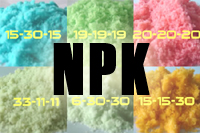 |
||
Ron’s ArticlesNPK Go Away! Sustainability is Here to Stay!February 2008
Johann Wolfgang von Goethe observed, "It is better to be doing the most insignificant thing than to reckon even a half hour of insignificance." We have no daylight to waste. And, one of the best uses of your time - and money, is spreading compost. Every aspect of gardening depends on healthy soil. Biodiversity is the essence of healthy soil. There is no better way to increase biodiversity than to spread compost. Compost is an amazing composite of carbon, humus, acids, fungi, bacteria, protozoa and all sorts of microorganisms. If you increase the organic content in your soil by one percent, you'll increase your yield by sevenfold and your microorganism count will skyrocket. With compost as a base, all your following activities will be more productive. Your fertilizer will work better. Less water will runoff. And if you screw up, there's less damage. Let's say you haven't disposed of all your chemicals and you grab a bottle of chemical pesticide instead of a bottle of dormant oil. The carbon in your soil will serve as a buffer helping to neutralize the poisons. Strong recommendation: Get all that bad stuff to the proper disposal site ASAP! Recently I attended a seminar led by Dr. Kevin Ong, a Texas A& M plant pathologist. He stressed the need to change the environment to make it more conducive to a wide variety of beneficial microbes. He leans toward the new commercially formulated super fertilizers and bioinoculants. Now that more people are catching on to the wisdom of going GREEN, the big chemical fertilizer companies are scrambling to come up with new products to cash in on organics. These products are formulated for national distribution and backed by big advertising budgets. But, for my money, local compost is the best bet. It's a microorganism magnet.
University researchers have two favored study sites: Laboratories and golf courses. Obviously your lawn is no lab. But how close does your lawn care routine come to that practiced on golf courses? They mow every other day - always with freshly sharpened blades. Their turf is laid over about 6 inches of sand to enhance drainage. Their watering is monitored constantly. They aerate and top dress monthly. Need I go on? While corn gluten meal performed well in the lab and on golf courses, you won't get the same results on your turf. Just an inch of water shuts down its weed killing power. And, its nitrogen content can be a problem. There is ample evidence that the fungal problems that are common in the spring and fall are caused by excessive nitrogen. St Augustine grass requires 2 to 4 lbs of nitrogen per 1000 sq ft annually. So does it make sense to spread 20 lbs of corn gluten meal over that 1000 in the spring and the fall with it being 10% nitrogen? This will just stimulate faster growth and perpetuate the problem. It's much better to work with the natural nitrogen fixing bacteria and legumes in the soil. This natural nitrogen is more available to plants than anything we can spread on top of the soil. But, to release this nitrogen, the legumes and bacteria need air - to breathe. So aerate - poke holes in the soil. It takes a little time and effort. But it's free! Another valuable free asset is the lawn and garden debris from your own property. Every time you discard a bag of lawn and garden debris you're losing black gold. It's like mining the nutrients and minerals from your property and throwing them away. As you clean up around your yard this month, pile the stuff up to start making your own compost. It need not be elaborate. If a compost pile is out of the question, try sheet composting. That's simply tossing your coffee grounds, chopped up banana peels and such on your garden or running your lawn mower over leaves on the grass. Don't get caught up on NPK. Let's shift beyond organics to sustainability. Follow the fundamentally laws of nature - don't over or under water, don't over or under feed and build the carbon in the soil. 
|
|
|


|
||

 February is a prime time to feed the lawn. Lots of people have been convinced that the best way to do this to apply corn gluten meal. It's fairly expensive, but it's worth it. Right? After all, there's university research proving that corn gluten meal not only provides a boost of nitrogen but is a powerful weed inhibitor. Unfortunately, what they don't know is that most university research doesn't apply to the average residential property.
February is a prime time to feed the lawn. Lots of people have been convinced that the best way to do this to apply corn gluten meal. It's fairly expensive, but it's worth it. Right? After all, there's university research proving that corn gluten meal not only provides a boost of nitrogen but is a powerful weed inhibitor. Unfortunately, what they don't know is that most university research doesn't apply to the average residential property.